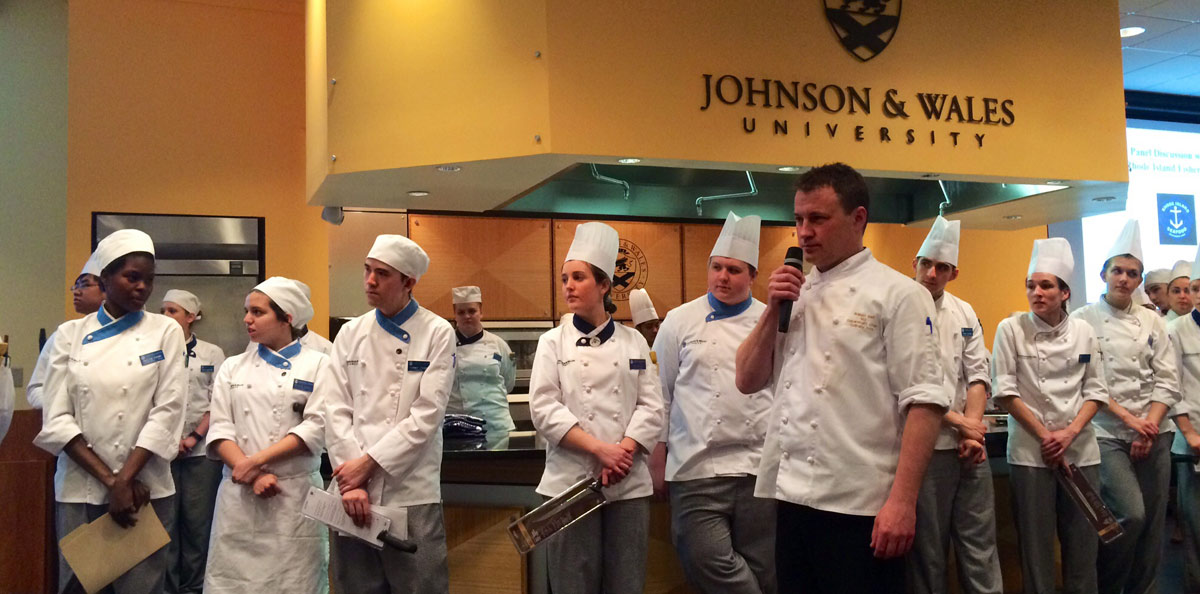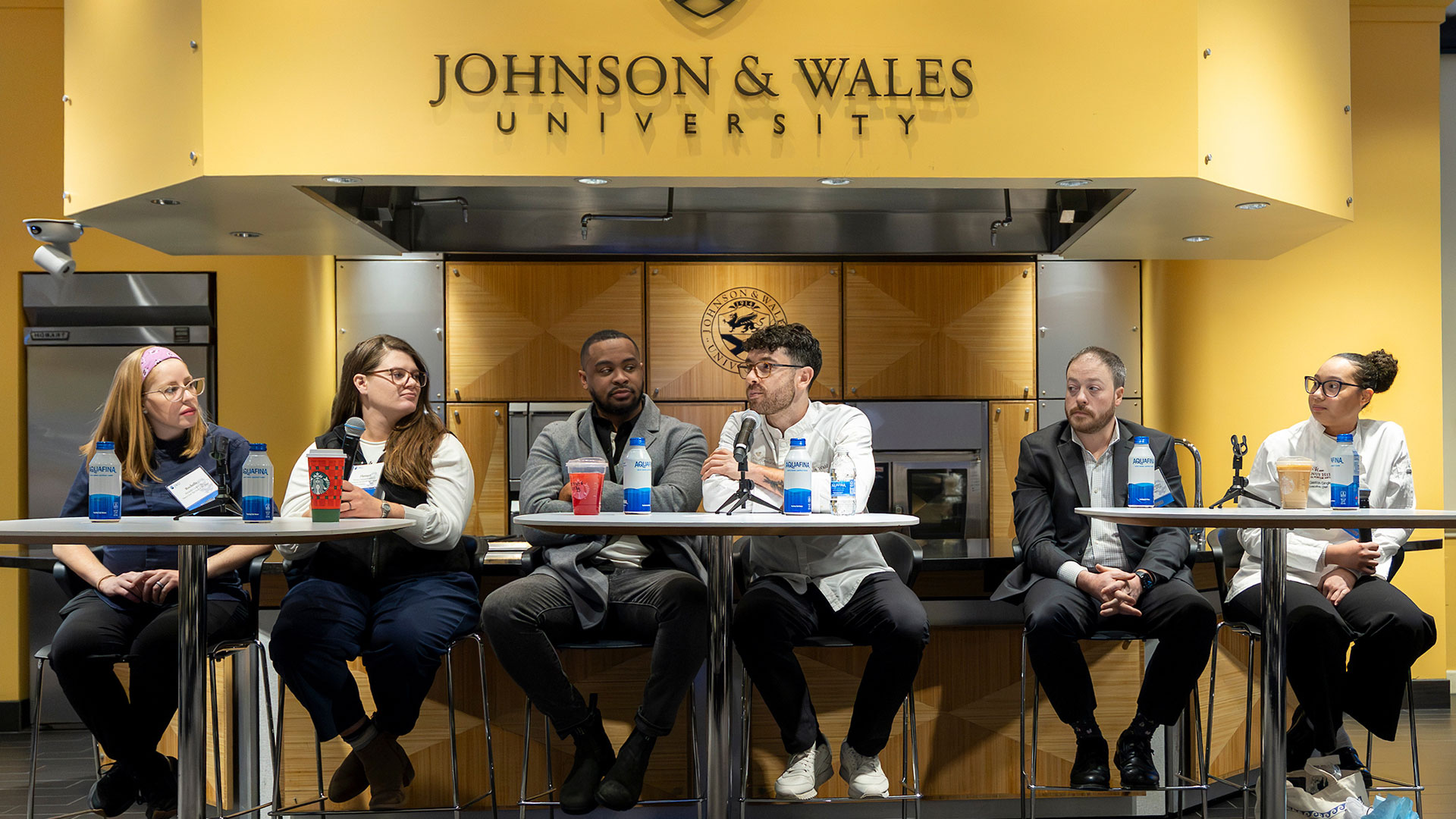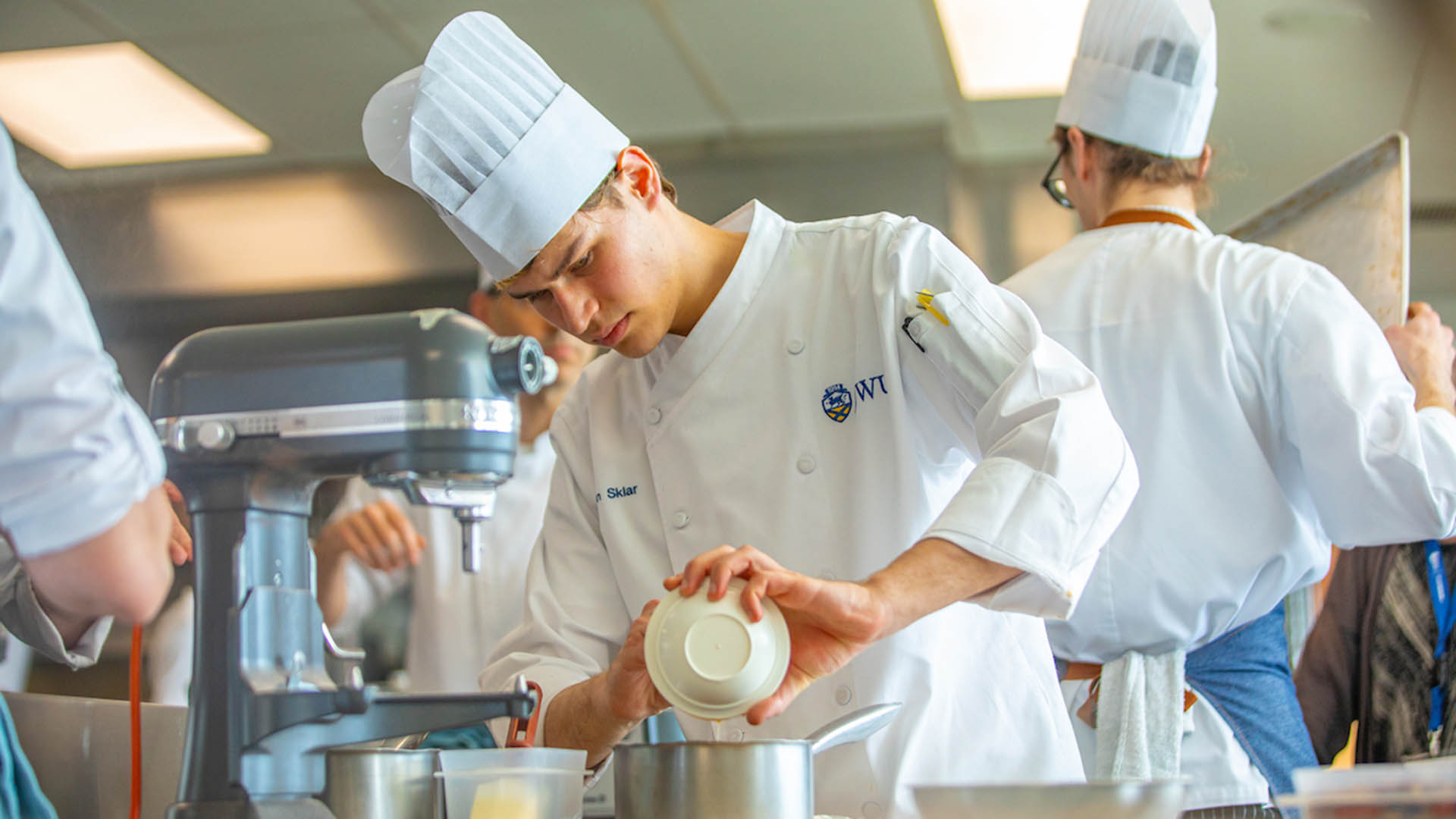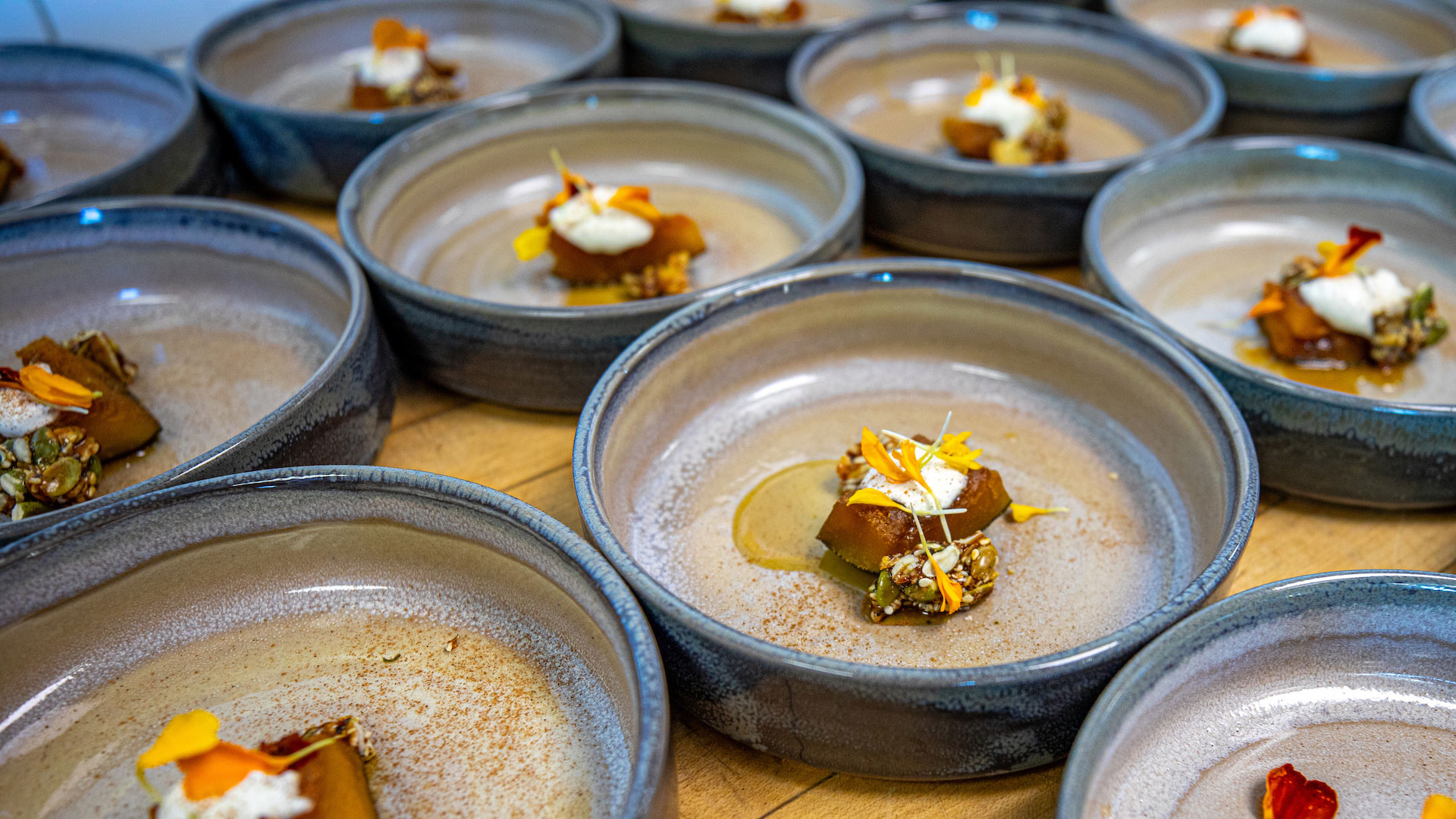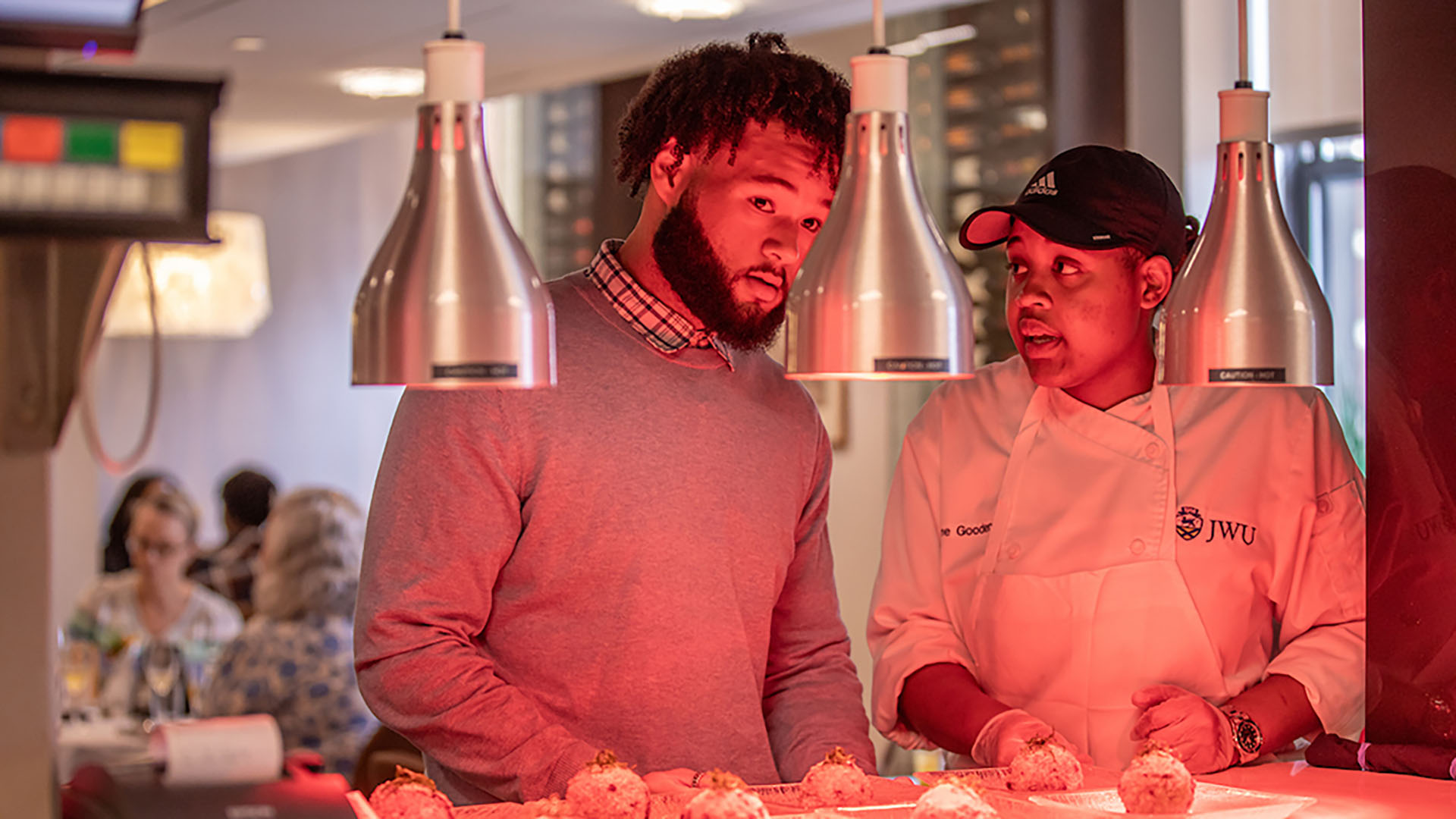2015 RI Seafood Challenge: What’s Scup?
What’s scup? Most Rhode Islanders don’t know about this plentiful local fish — or that RI is its largest harvester.
Last week, JWU Providence’s College of Culinary Arts and the Rhode Island Sea Grant joined forces for the 2015 Rhode Island Seafood Challenge, an annual event designed to create a thriving market for scup, also known as porgy.
This year’s event, held at JWU’s Harborside Campus, drew not only chefs, RI officials and fishermen, but members of the public curious to learn about — and perhaps try — scup for the first time.
“You have a delicious opportunity in front of you,” noted Janet Coit, director of the Rhode Island Department of Environmental Management, one of the state organizations tasked with turning around the scup market. “Scup is plentiful, it’s healthy and doesn’t require a lot of energy to transport.”
“Scup is plentiful, it’s healthy and doesn’t require a lot of energy to transport.” -Janet Coit, RI DEM
Three JWU culinary clubs made that “delicious opportunity” literal. The Club of Culinary Excellence, Cooking Asia and JWU Nutrition Society were tasked with developing creative ways to prepare and serve scup. (A winner would be chosen by the audience.)
Each club also designed an activity to promote or educate the public about scup.
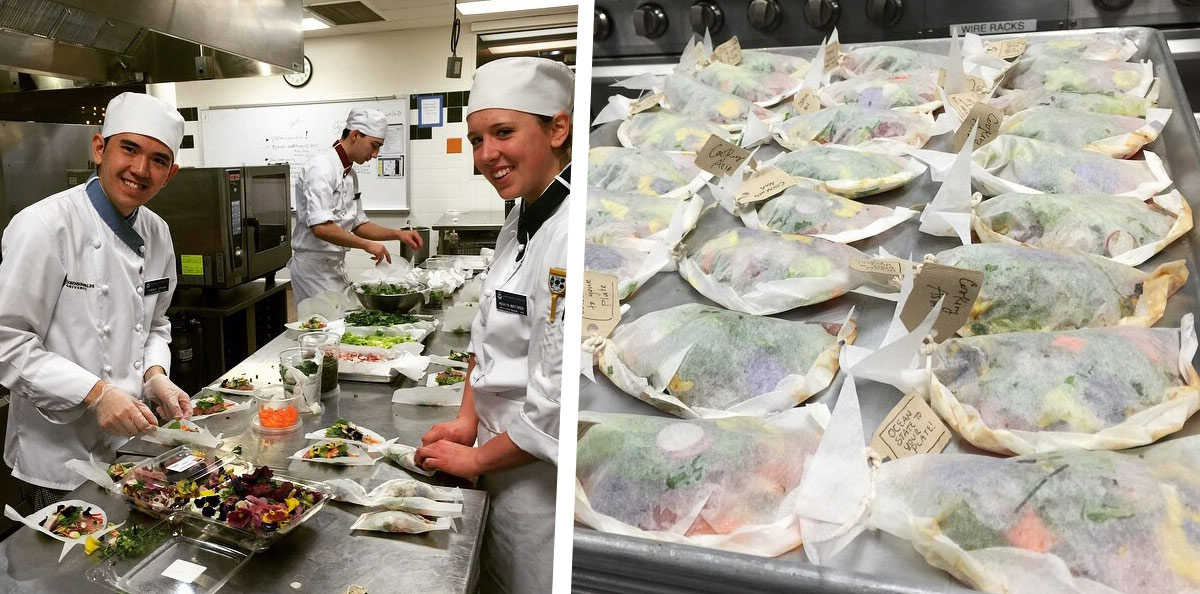
Cooking Asia members prepping their signature dish, scup en papillote. | Photos: Branden Lewis
“Local food is fresher — and with seafood, fresh makes a difference,” explained Bill Idell, culinary arts department chair and event MC, before sending out the first dish, the Club of Culinary Excellence’s beer-battered scup with cauliflower-pistachio couscous. (Careful to use every part of the fish, they topped the dish with a spicy chicharrón made from scup skin.)
Scup is usually sold as a whole fish, which can be a barrier to the average home cook. The CCE’s educational component was a real-time filleting demonstration to show how easy is can be to portion the fish at home.
Cooking Asia was next. Their educational video answered the question, “What’s scup?” by paying a visit to the Galilee docks, which serve as the hub of RI’s fishing industry. “Fishing is a way of life here,” explained First Mate Kevin Jones of the Heather Lynn. “70,000 pounds of scup is coming in today.”
Cooking Asia prepared scup en papillote (or “porgy in a pouch,” quipped Idell), which even came with its own tagline: “Ocean State to your plate.” Steaming fish in parchment is a way to impart flavor without adding fat. Cooking Asia’s light, veggie-forward dish balanced scup’s mild flavor with bright aromatics generally associated with Southeast Asian cuisine (cilantro, ginger, lemongrass, kaffir lime + celery leaves). (Everyone in the audience aah’d when opening up their parchment packets released a fragrant, ginger-y steam.)
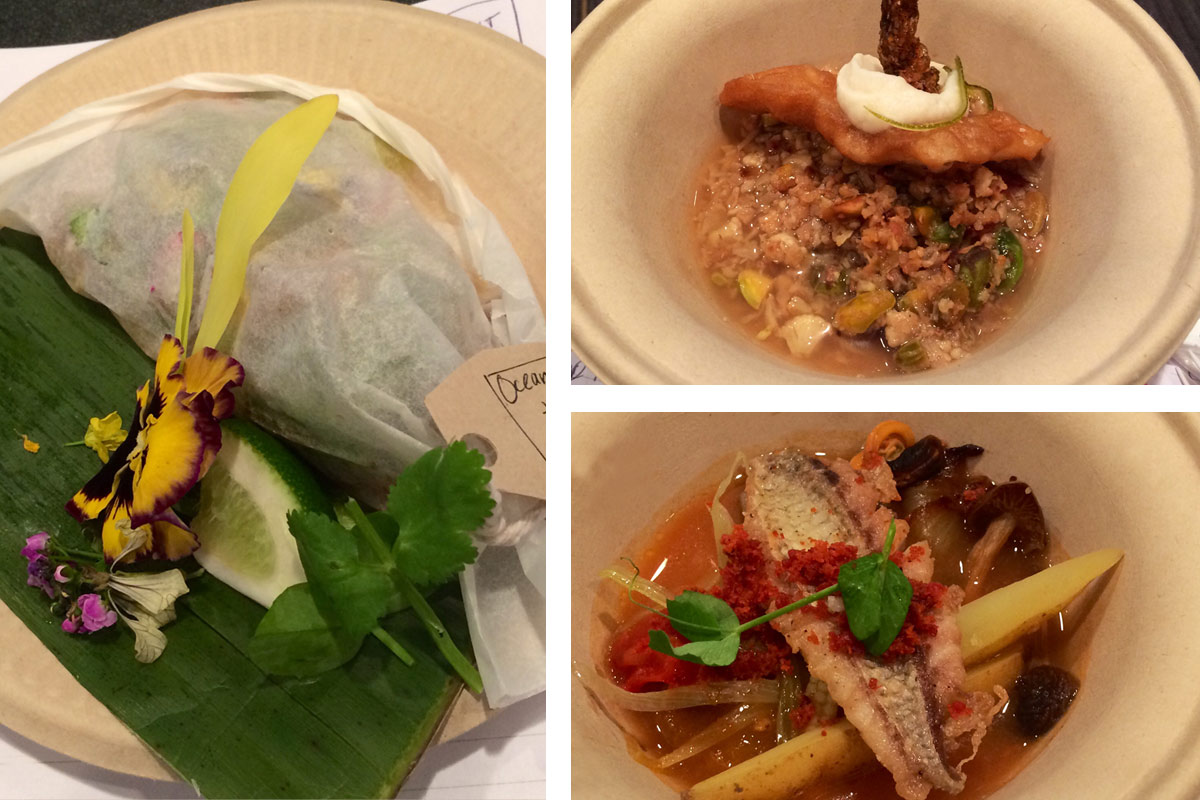
“We need to get people to see what a good food source [scup] is.” -Don Fox, Town Dock
The Nutrition Society amped up a rich bouillabaisse (a French classic) with local seafood (scup, clams, mussels, lobster). They further boosted the broth’s flavor by adding smoked mussels, roasted onions and crisped-up enokis. The broth was then topped with pan-seared scup fillet crusted with chorizo powder. They also created an info sheet detailing availability, nutritional breakdown and signs of freshness in a whole scup.
Now that all the dishes had been tasted, it was time to vote. Dishes were judged on their flavor, presentation and overall marketability. What’s Scup? t-shirts were given to all the student competitors. While the votes were being tallied, Peg Petruny-Parker, executive director of the Commercial Fisheries Research Foundation (CFRF), moderated a panel of local fishermen to talk strategies for keeping our local fish economy healthy and growing.
Aaron Williams, a fisherman out of Point Judith, called scup “a good problem to solve.” “We’re allowed to catch 50,000 pounds per day,” said Donald Fox, fleet manager of Town Dock. “But the price is sometimes so low they’re not worth catching. We need to get people to see what a good food source [scup] is.”
Now it was time to announce the winners of the recipe competition. The student teams quickly assembled, along with their proud culinary faculty club advisors, chefs Branden Lewis, Jonathan Poyourow and Michael Makuch. Everyone received a “What’s Scup?” t-shirt and a filleting knife.
“A round of applause for all our students who spent countless hours out of class to work on this project!” said Idell, before proclaiming Cooking Asia the winner. Team members received gift certificates to Nicks on Broadway, Garde de la Mer and New Rivers.
“Any last questions?” Idell asked the audience. “Yes!” said the DEM’s Coit. “When can we come back?”
